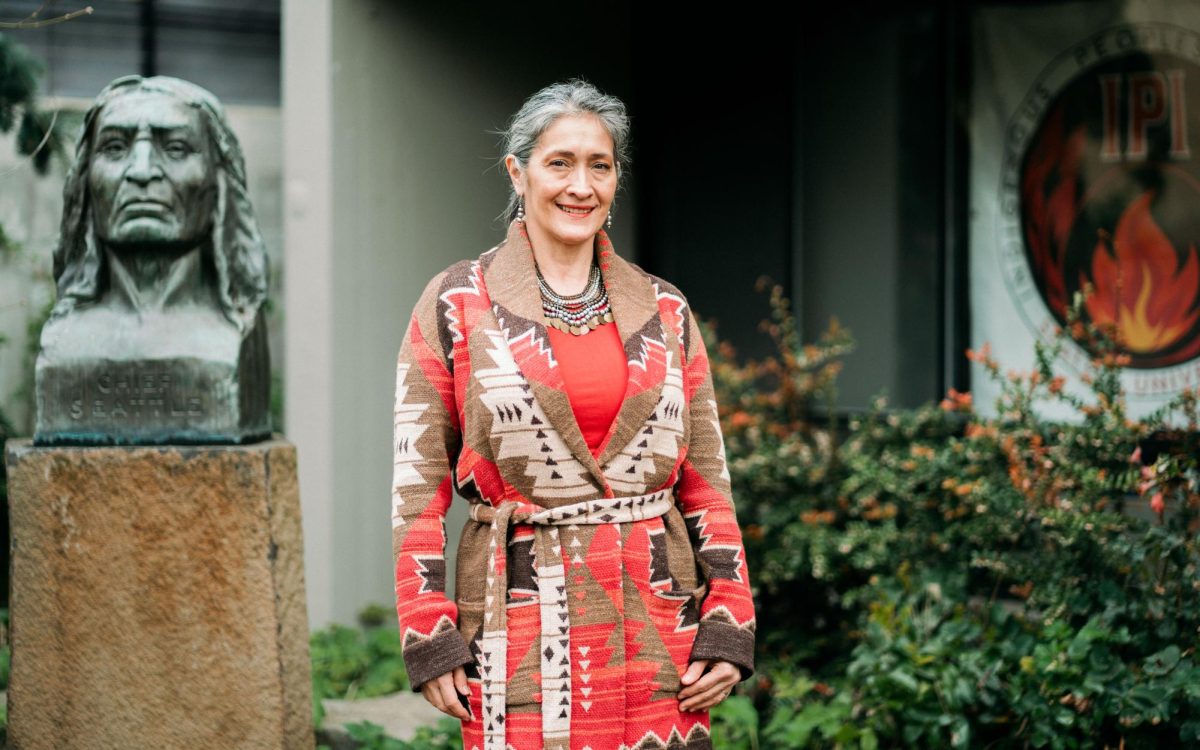CAP HILL CRIME HITS RECORD HIGH—Newly-appointed police chief Kathleen O’Toole visited Capitol Hill earlier this month following reports that the neighborhood saw its highest-ever robbery rate in August.
O’Toole, the city’s first female full-time police chief, met with community members to field concerns about the recent spike in crime in the Pike/Pine corridor and outline plans to bolster policing in the area.
The new police chief announced at the meeting that gang units would be more active starting this month, paying particular attention to Pike/Pine and Cal Anderson Park. The number of officers patrolling the neighborhood on foot would also be increased.
Confirmed by an 8 to 1 vote by Seattle’s City Council, O’Toole has been warmly welcomed to her new position. She makes her debut as SPD faces pressure from the Department of Justice to prevent misconduct that has soured the reputation of Seattle’s police and compromised the public’s trust.
WHITE HOUSE FACES BORDER CRISIS—The surge in unaccompanied minors attempting to cross the U.S./Mexico border finally began to lessen following a high of 10,600 children
in June.
The border crisis, which some members of Congress dubbed Obama’s “Katrina Moment,” was caused by heightened drug- and gang-related violence in several Central American countries, some experts said.
The majority of the child migrants have fled from Guatemala, El Salvador, and Honduras.
After facing criticism from both congress members and immigration reform activists for their lack of swift executive action during the crisis, the Obama administration spearheaded a public-relations offensive in Latin America to discourage further illegal immigration into the United States.
The Republican-led House and the Democratic-led Senate both proposed funding bills for the crisis, but neither made it out of Congress.
Though the influx of undocumented children has slowed, the crisis is far from over. The U.S. is struggling to offer shelter and due process to the large swaths of people that have crossed the border. Additionally, a civil rights coalition recently filed a suit to slow the deportation of women and children and increase protection of detainees’ rights at a New Mexico detention center.
SEATTLE’s $15 TRAILBLAZING—After a long-fought battle by labor activists, fast food employees and Mayor Ed Murray, Seattle City Council made history on June 2 when it unanimously passed an ordinance to raise the city’s minimum wage to $15 per hour, a number well above the federally mandated pay floor of $7.25 per hour.
Large businesses that do not provide health insurance to their employees, like the Holiday Inn Express in North Seattle, will be required to pay the $15 minimum by 2017. Large businesses that do provide health plans, like El Gaucho, a multi-restaurant and catering company, have until 2018 to adopt the new minimum. Small businesses with employees that receive tip income, like restaurants, will have to phase in the ordinance at some point after 2018.
All employers, regardless of size, will need to pay a $15 minimum wage by 2021. The inflation-adjusted wage is predicted to be $18 by 2025.
A carve-out in the law exempts employers from paying teenagers the new minimum.
The city council’s unprecedented move has not gone without criticism. In some cases, employers are preparing to cut jobs or halt expansion. Others are leaving Seattle entirely. Colleges and universities that provide student employment may have to employ fewer students.
Only time will tell if Seattle’s trailblazing will pay off.
NATIONAL RECKONING WITH RACE—Unarmed black teenager Michael Brown was fatally shot by police officer Darren Wilson in Ferguson, Mo. last month, fueling protests, reigniting debates on police tactics and race relations, and sparking a federal civil rights investigation.
At 12 p.m. on Aug. 9, Brown was shot six times and left lying dead on the ground for nearly four hours. The St. Louis suburb held a vigil that evening, which soon evolved into a sustained protest. The late hours of the night saw what was initially a peaceful gathering erupt into vandalism and looting by select perpetrators. A heavily militarized police, garbed in camouflage and riot gear, responded with tear gas and rubber bullets.
Tensions between protesters, the media and the police continued to ebb and flow in the following weeks. Eleven journalists were arrested over the course of the mid-August protests.
The roots of civil unrest in Ferguson extend past the anger the community felt after Brown’s death. Ferguson, a predominantly black city with high poverty rates, is represented by a primarily white city council, and the 53-member police force only employs three black officers.
These disparities, the onslaught of militarized policing in response to the protests, and Brown’s death prompted the U.S. Department of Justice to investigate the Ferguson Police Department. The civil rights investigation was announced by Attorney General Eric Holder earlier this month.
U.S. AT WAR, AGAIN—On the heel of murders in the Middle East that shocked the world this summer, President Barack Obama pledged to “degrade” and “destroy” the Islamic State during a prime time special on the eve of the thirteenth anniversary of 9/11.
The president’s comments came after the beheadings of two American journalists by the terrorist group, also known as ISIS or ISIL, in August. The brutality, filmed and released on YouTube, was said to be a direct response to President Obama’s decision to strike the extremists in Iraq last month.
Aside from ISIS’ threat to national security and stability in the Middle East, the group’s barbarian tactics have also raised challenging questions about American foreign policy—particularly the U.S. government’s refusal to negotiate with terrorist groups. Despite requests for ransom for the release of journalist James Foley before he was beheaded, the U.S. did not concede to the Islamic militants. Other nations, like Britain, maintain a similar policy. But the French, German, Italian, and Spanish governments do pay ransoms, although they will not admit to it publically, some U.S. officials said. Four French journalists and two Spanish journalists were welcomed home in April after their governments reportedly paid large ransoms.
ISIS gained salience as a significant player in the Iraqi insurgency after the 2003 U.S. invasion to topple Saddam Hussein. Their goal was to establish a hardline Islamic state in Iraq and Syria. ISIS ruled with a strong, oppressive force in the areas they controlled, largely supported by Sunnis. They banned music and beheaded dissenting civilians. Once a part of al-Qaida in Iraq, ISIS’ behavior proved too extreme even for the organization once led by Osama bin Laden. Al-Qaida disavowed ISIS in February.










